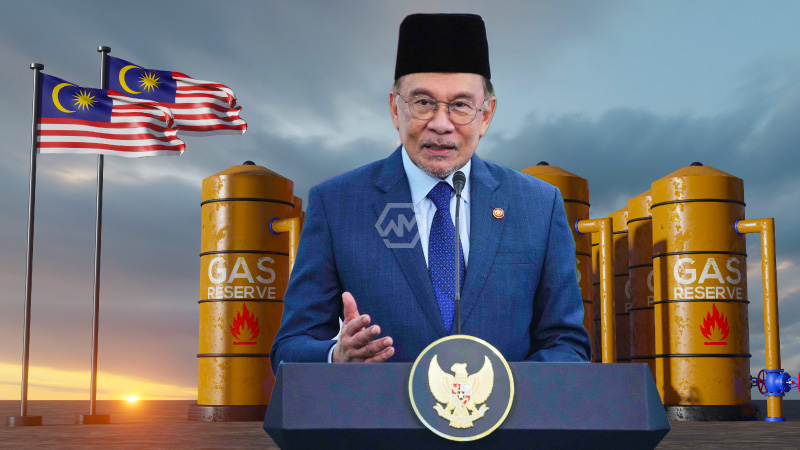- PM Anwar Ibrahim announces RM100 cash aid and a fuel price cut to RM1.99/litre.
- The move comes days before a mass protest demanding his resignation.
- Economists raise concerns over the fiscal impact of increased government spending.
In an urgent response to growing public unrest, Malaysian Prime Minister Anwar Ibrahim has announced a nationwide RM100 cash handout for all citizens aged 18 and above, alongside a modest reduction in the RON95 fuel price to RM1.99 per litre.
However, economists and global rating agencies warn that such relief measures could derail Malaysia’s fiscal consolidation plans. While the cash aid is expected to boost short-term consumer spending, questions remain about how the government will fund this expanded assistance.
Anwar’s Emergency Aid Measures Tested by Economic Strain and Public Outrage
Anwar’s government has faced mounting criticism for implementing reforms that disproportionately impact everyday Malaysians. Earlier adjustments—such as higher electricity tariffs for heavy users and increased service taxes—were framed as necessary fiscal steps but ended up amplifying fears of inflation. The current aid package is a clear shift toward direct relief, but critics argue that such stopgap policies do little to address the root of the economic hardship.
The upcoming protest in Kuala Lumpur is expected to draw 10,000–15,000 demonstrators, signaling the strongest challenge yet to Anwar’s political credibility. Organized by opposition parties, the rally accuses Anwar’s administration of failing to control inflation and not delivering on electoral promises. The Prime Minister acknowledged the discontent in a televised address and hinted at more anti-poverty measures set to be announced soon.
The new fuel subsidy mechanism—slated for full details by the end of September—will differentiate between Malaysian citizens and foreign nationals, the latter of whom must pay market rates. However, enforcement mechanisms have not been clarified, raising concerns about potential loopholes, smuggling, and misuse. Targeted subsidies are a long-standing policy challenge in Malaysia, where blanket subsidies have historically strained government finances.
Global credit rating agencies are paying close attention. Fitch Ratings warned that delays or inadequate reform could jeopardize Malaysia’s target of reducing its deficit to 3% by 2028. With high debt levels and a global economy still facing uncertainty, Malaysia’s balancing act between immediate relief and long-term reform remains precarious.
Malaysia’s latest relief package may offer short-term breathing room, but it underscores a deeper dilemma: how to balance fiscal responsibility with urgent public needs in a volatile economic landscape.
“The true test of leadership is how well you function in a crisis.” — Brian Tracy



